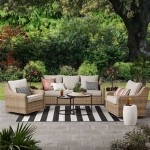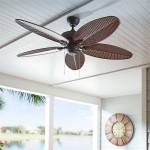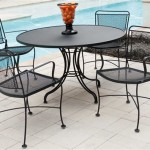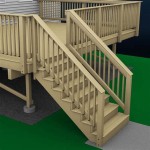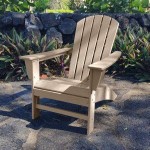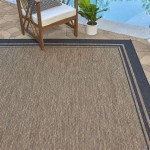Finding the Perfect 4 Foot Bench Cushion for Your Outdoor Oasis
Outdoor benches offer a welcoming space for relaxation and socialization in gardens, patios, and balconies. To truly maximize comfort and enjoyment on these benches, selecting the right cushion is paramount. A 4 foot bench cushion is a common and versatile size, suitable for a wide range of bench styles and applications. This article explores the key considerations when choosing a 4 foot outdoor bench cushion, focusing on materials, comfort factors, and practical maintenance.
Material Selection: Durability and Weather Resistance
The material of an outdoor bench cushion is perhaps the most crucial factor determining its longevity and performance. Outdoor cushions are exposed to a variety of environmental stressors, including sunlight, rain, wind, and temperature fluctuations. The ideal material should be able to withstand these conditions without significant degradation.
Several types of fabric are commonly used for outdoor cushions. Solution-dyed acrylic fabrics, such as Sunbrella, are widely considered the gold standard. These fabrics are exceptionally resistant to fading, staining, and mildew. The color is integrated into the fiber itself during the manufacturing process, providing superior colorfastness compared to surface-dyed fabrics. Solution-dyed acrylic is also highly water-resistant and dries quickly, minimizing the risk of mold and mildew growth.
Polyester is another popular choice for outdoor cushions, offering a more budget-friendly alternative to solution-dyed acrylic. While polyester is generally resistant to water and stains, it is more susceptible to fading from prolonged exposure to sunlight. Look for polyester fabrics that are treated with UV protectants to enhance their resistance to fading. Polyester is also relatively easy to clean and maintain.
Olefin is a synthetic fiber known for its durability, resistance to fading, and affordability. It is often used in outdoor cushions and rugs. Olefin is resistant to staining, mildew, and abrasion. Its textured surface can provide good grip. However, olefin can be more susceptible to damage from high heat than other materials, so it's best to avoid placing it near sources of direct heat.
In addition to the fabric, the fill material of the cushion also plays a significant role in its comfort and durability. Common fill materials include polyurethane foam, polyester fiberfill, and shredded foam. Polyurethane foam offers good support and cushioning, but it can retain water if not properly protected. Look for open-cell foam options that allow for better drainage and airflow. Polyester fiberfill is lightweight, quick-drying, and resistant to mildew. It provides a softer, more plush feel compared to foam. Shredded foam is often made from recycled materials and offers a more environmentally friendly option. However, it can sometimes lack the uniform support of solid foam cores.
The construction of the cushion is also important. Seams should be reinforced to prevent ripping, especially in high-stress areas. Look for cushions with zippers or Velcro closures that allow you to remove the cover for cleaning. This can significantly extend the life of the cushion.
For added protection, consider using outdoor cushion covers. These covers can shield the cushions from rain, dirt, and UV rays, further extending their lifespan. They are available in a variety of materials and sizes to fit most 4-foot bench cushions.
Comfort and Ergonomics: Density, Thickness, and Support
While durability is essential for outdoor cushions, comfort is equally important. The density and thickness of the cushion directly affect how comfortable it feels to sit on for extended periods. A cushion that is too thin or too soft will not provide adequate support, leading to discomfort and fatigue.
Cushion density refers to the amount of material packed into a given volume. Higher density foams and fills generally offer better support and are less likely to compress over time. However, higher density can also mean a firmer feel. The ideal density will depend on personal preference and the intended use of the bench.
Cushion thickness is another crucial factor. A thicker cushion will generally provide more cushioning and support than a thinner one. For outdoor benches, a cushion thickness of at least 4 inches is recommended for optimal comfort. Thicker cushions can help to distribute weight more evenly and reduce pressure points.
The shape and design of the cushion can also contribute to comfort. Some cushions feature contoured designs that provide additional support for the back and legs. Others have tufted or buttoned surfaces that add visual interest and distribute weight more evenly. Consider the overall design of your bench and choose a cushion that complements its style and provides the desired level of support.
Beyond the cushion itself, the bench's design influences comfort. Ensure the bench seat is at a comfortable height. A seat height that is too low or too high can strain your back and legs. The bench's seat depth also matters. A seat that is too shallow may not provide enough support for your thighs, while a seat that is too deep can make it difficult to sit upright. Consider adding throw pillows for additional back support and added comfort.
Consider the placement of the bench. Providing shade through appropriate placement or additional umbrellas will help keep the bench and cushion cooler, enhancing comfort during warmer months. Integrating plants and other elements can also enhance the overall relaxation and comfort of the outdoor seating area.
Practical Considerations: Size, Maintenance, and Storage
Beyond material and comfort, several practical considerations should influence the selection of a 4 foot outdoor bench cushion. These include accurate sizing, cleaning and maintenance requirements, and appropriate storage when not in use.
Accurate sizing is crucial to ensure a proper fit. Measure the length and width of your bench seat carefully before purchasing a cushion. A cushion that is too small will look out of place, while one that is too large will be difficult to place and can create uncomfortable overhang. Also, clarify if the stated size includes the cushion’s seams or not. Slight discrepancies in size can affect the fit.
Regular cleaning and maintenance are essential to prolong the life of your outdoor bench cushion. Dirt, dust, and debris can accumulate on the fabric surface over time, leading to discoloration and damage. Vacuum the cushion regularly to remove loose particles. For spills and stains, clean the affected area immediately with a mild soap and water solution. Avoid using harsh chemicals or abrasive cleaners, as these can damage the fabric.
Many outdoor cushions have removable covers that can be machine washed. Follow the manufacturer's instructions for washing and drying to avoid shrinking or damaging the fabric. If the cushion does not have a removable cover, spot clean it with a damp cloth and a mild detergent. Allow the cushion to air dry completely before using it again.
Proper storage is also essential for protecting your outdoor bench cushion during inclement weather or when it is not in use. Store the cushion in a dry, sheltered location, such as a garage, shed, or covered patio. This will help to prevent water damage, mildew growth, and fading. If you do not have access to indoor storage, consider using a waterproof cushion storage bag or cover to protect the cushion from the elements. Ensure the cushion is completely dry before storing it to prevent mold and mildew.
Consider the long-term cost of ownership when making your purchase. While a less expensive cushion may seem appealing initially, it may require more frequent replacement if it is not durable or weather-resistant. Investing in a higher-quality cushion that is made from durable materials and is easy to maintain can ultimately save you money in the long run.
Furthermore, consider the environmental impact of your cushion choice. Look for cushions that are made from recycled materials or that are manufactured using sustainable practices. Choosing eco-friendly options can help to reduce your environmental footprint and support responsible manufacturing.
Ultimately, selecting the perfect 4 foot outdoor bench cushion involves balancing factors like durability, comfort, and practicality. Careful consideration of these aspects will ensure that the chosen cushion enhances the enjoyment and longevity of the outdoor seating area.

4 Ft Veranda Bench Cushion Westminster Teak

4 Foot Outdoor Bench Seat Cushion Only Pool Furniture Supply

Four 4 Foot Park Bench Cushion

A L Furniture Co 4 Full Bench Cushion Rocking

Arden 48 In X 18 Rectangular Outdoor Plush Modern Tufted Bench Cushion French Blue Texture Zq1al11b D9z1 The Home

4 Foot Full Bench Cushion Accessory

Swing Bench Cushions

Custom Outdoor Bench Cushion Foamorder

Outdoor Sunbrella Fabric Custom Made Seat Cushions For Marvel 4 Feet Bench

A L Furniture Co 68 X 18 Outdoor Cushion For Benches And Porch Swings


